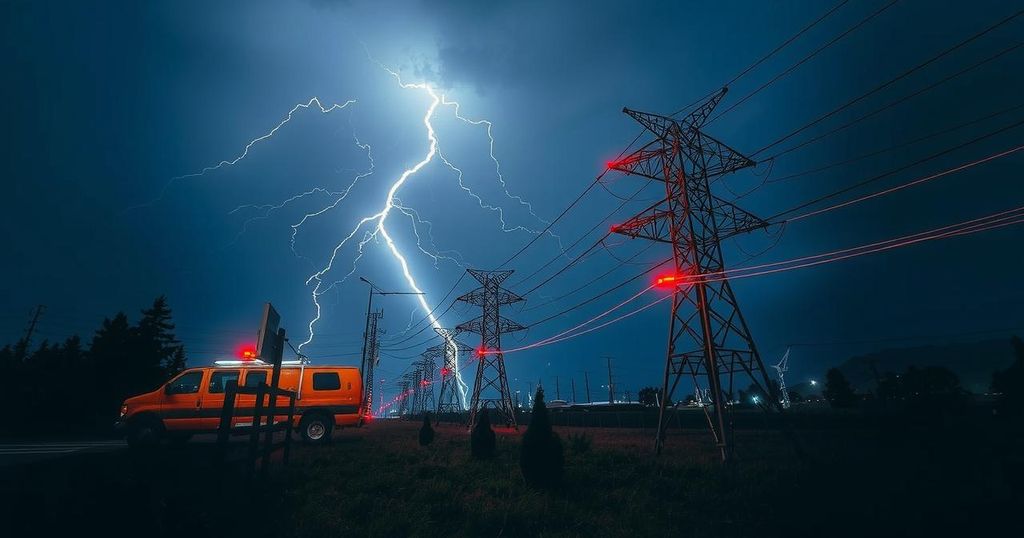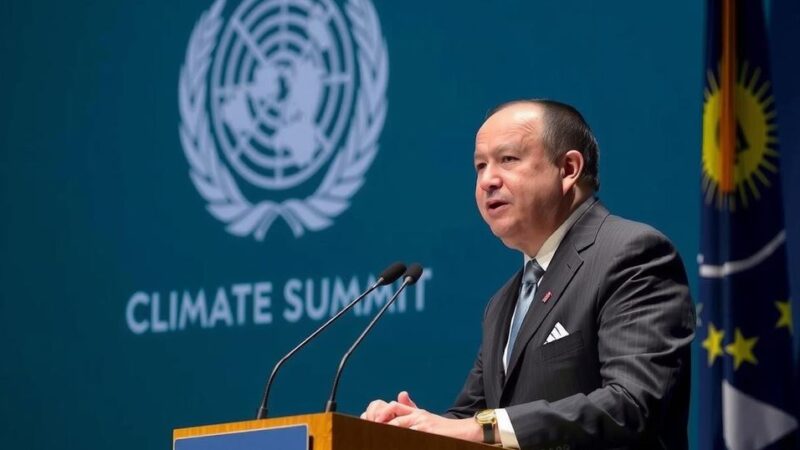The bomb cyclone in Western Washington caused significant power outages, impacting over half a million residents and exposing deficiencies in the electrical grid. Experts are urging immediate upgrades and a transition towards renewable energy sources to bolster resilience against future storms, particularly as climate change exacerbates weather patterns.
The recent bomb cyclone that swept through Western Washington resulted in massive power outages affecting approximately half a million residents. The cyclone’s strong easterly winds, at times reaching hurricane strength, caused extensive damage to the region’s electrical infrastructure, downing trees and disrupting power lines. The aftermath revealed significant vulnerabilities in the Pacific Northwest’s energy grid, raising urgent calls for upgrades amid a growing demand for electricity fueled by climate change and renewable energy transitions.
Many individuals experienced prolonged power outages, with more than 170,000 still without electricity days after the storm. Hospitals, critical infrastructure, and vulnerable populations relying on electrical medical equipment were particularly impacted. Notably, inadequate communication between utility companies and emergency responders compounded the challenges in restoring power efficiently.
As the region grapples with climate-related events, experts emphasize the necessity for a comprehensive overhaul of the energy grid. Utilities are urged to diversify their energy sources, enhance transmission capabilities, and invest in renewable energy to ensure resilience against future storms. The need for skilled workers in the industry is also paramount to address existing infrastructure issues and facilitate the transitions toward cleaner energy solutions.
The bomb cyclone that struck Western Washington revealed critical weaknesses in the region’s electrical grid, as utilities face increasing pressure to integrate more renewable energy. This storm served as a wake-up call, underscoring the urgent need for infrastructure upgrades to bolster resilience against extreme weather events that are becoming more frequent due to climate change. With state mandates for carbon-free energy by 2045, experts stress the importance of diversifying energy sources and improving communication between utility companies and emergency responders during crises.
In conclusion, the devastation caused by the bomb cyclone in Western Washington highlights the urgent necessity for upgrades to the electrical grid in response to growing demands and heightened climate challenges. The complexity of the outages, coupled with inadequate communication from utility companies, underscores the importance of improving infrastructure, enhancing renewable energy integration, and ensuring that skilled labor is available to maintain and repair the grid effectively. As weather events continue to disrupt power supply, the region must adopt innovative solutions to foster resilience against future storms.
Original Source: www.seattletimes.com






